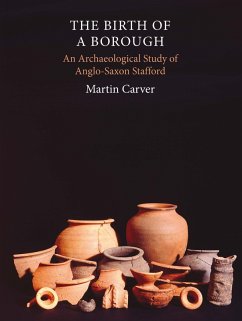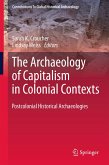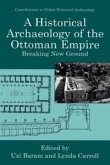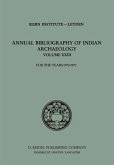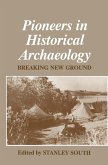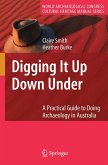Reports of archaeological investigations into Stafford dramatically reveal the pattern of development of our county towns.
The majority of our county towns, and the shires themselves, owe their origins to the campaigns of Alfred and his children Edward the Elder and Aethelflaeda, Lady of the Mercians, in the late 9th and early 10th centuries. Staffordis one such town, and the large-scale archaeological examinations undertaken there over the last fifty years have provided an extraordinary, unique opportunity to piece together the history of such a "typical" town. A centre forthe delivery of grain tribute during the Dark Ages, it was commandeered in the tenth century by Aethelflaeda in order to construct a burh there. This new foundation was a fort, provided with a vicus in which the centralised production of Roman-style pottery ("Stafford Ware") was undertaken and supplied to the chain of west midlands burhs.
The case of Stafford has prompted a new review of the origins of county towns as a whole, and the composition of a new model for the birth of the Anglo-Saxon borough on which the local administration of England has ever since been based.
Martin Carver is Professor Emeritus of Archaeology at the University of York.
The majority of our county towns, and the shires themselves, owe their origins to the campaigns of Alfred and his children Edward the Elder and Aethelflaeda, Lady of the Mercians, in the late 9th and early 10th centuries. Staffordis one such town, and the large-scale archaeological examinations undertaken there over the last fifty years have provided an extraordinary, unique opportunity to piece together the history of such a "typical" town. A centre forthe delivery of grain tribute during the Dark Ages, it was commandeered in the tenth century by Aethelflaeda in order to construct a burh there. This new foundation was a fort, provided with a vicus in which the centralised production of Roman-style pottery ("Stafford Ware") was undertaken and supplied to the chain of west midlands burhs.
The case of Stafford has prompted a new review of the origins of county towns as a whole, and the composition of a new model for the birth of the Anglo-Saxon borough on which the local administration of England has ever since been based.
Martin Carver is Professor Emeritus of Archaeology at the University of York.
Dieser Download kann aus rechtlichen Gründen nur mit Rechnungsadresse in A, D ausgeliefert werden.

